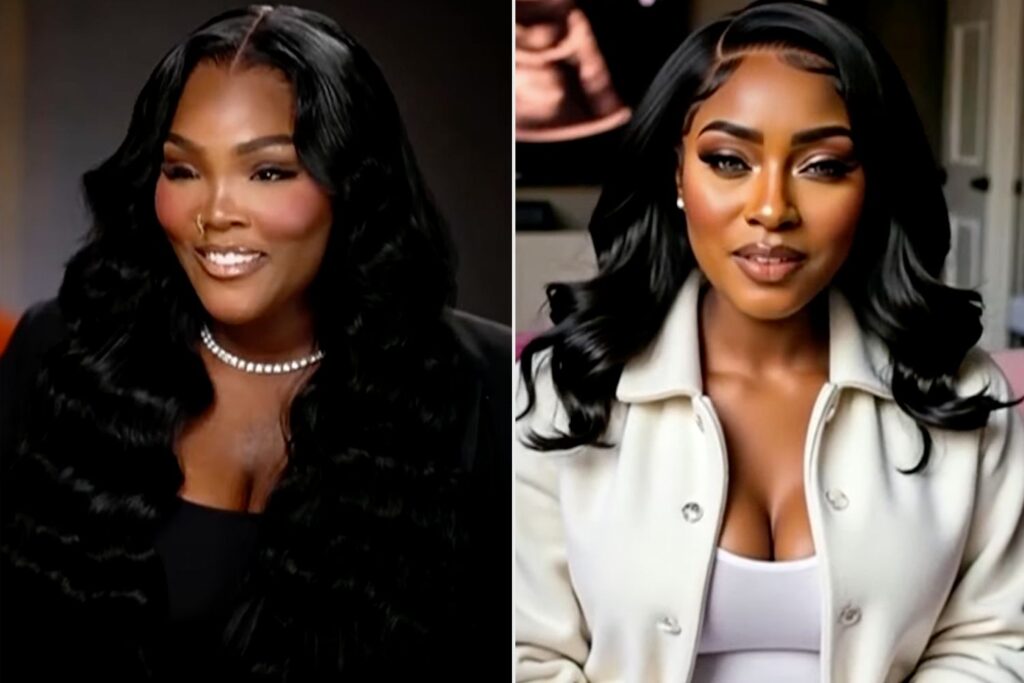NEED TO KNOW
Four months ago, Telisha Nikki Jones began teaching herself artificial intelligence. Now, Xania Monet — the avatar the 31-year-old Mississippi poet created — has made history as the first known AI-generated singer to appear on a Billboard radio airplay chart.
The success has led to a wave of opportunities for Jones, including a multimillion-dollar recording contract with Hallwood Media (which she obtained after what Billboard described as a “bidding war”).
But it’s also put her in the hot seat, with artists across the music industry criticizing her for using technology to craft her songs.
Jones, who owned a printing company before her foray into music, defended herself during a sit-down with CBS Mornings’ Gayle King that aired on Wednesday, Nov. 5.
Never miss a story — sign up for PEOPLE’s free daily newsletter to stay up-to-date on the best of what PEOPLE has to offer, from celebrity news to compelling human interest stories.
She explained that she writes all of the lyrics to the songs, taking the words from poems she’s been writing since she was 24 — including Xania Monet’s biggest hit, “How Was I Supposed to Know?”, which was inspired by the death of Jones’ father when she was just 8 years old.
“There’s real emotions and soul put into those lyrics,” she said. “Whether [it was] stuff I went through, a close family member or a close friend, I wrote about it.”
To craft her songs, Jones imports her poems into the AI app Suno and selects prompts that guide how she wants the tunes to sound, like “female voice,” “soulful vocals,” “slow tempo,” “R&B style,” “light guitar” and “heavy drums.” The app creates two versions of the same song, and Jones will continue to tweak and generate hundreds of versions until she finds what she likes.
“Xania is an extension of me, so I look at her as a real person,” she said.
“But you can’t sing! So in that sense, she’s not a real person,” King, 70, shot back. “What do you say to people who say she may be an extension of you, but other singer who have worked hard, who have practiced their craft, who are struggling to get heard, who are really doing the actual singing, you seem to have taken a shortcut through all of that?”
“I wouldn’t call it a shortcut, because I still put in the work,” said Jones. “Anytime something new comes about and it challenges the norm and it challenges what we’re used to, you’re going to get strong reactions behind it. And I just feel that AI is the new era that we’re in. I look at it as a tool, as an instrument. Utilize it!”
One of those people has been Kehlani. The Grammy-nominated singer posted a rant about the movement, referencing Xania Monet.
“Nothing and no one on earth will ever be able to justify AI to me, especially not f—ing AI in the creative arts in which people have worked hard for, trained for, slept on the floor for, f—ing got injuries for, worked for their entire lives,” Kehlani said. “I’m sorry, I don’t respect it.”
Regarding Jones, Kehlani added: “Maybe she should write a poetry book, I’d love to support a good poet. I can’t paint so I’m not going to create AI paintings and sell them, taking up space from up-and-coming painters.”
Asked about those comments, Jones told King, “everyone is entitled to their own opinion.”
“Technology is evolving,” said Jones. “Everybody has different ways of putting in the work to get to where they’re at. I don’t feel a way about it. I still love Kehlani’s music. I still listen to her music every day.”
King then presented Jones with one more criticism: the concern that this seems to open the door to digital Blackface. If a white man created Xania Monet, would that be okay?
“I mean, if they created it!” Jones said, admitting that she understands why people would be offended by that. “But that’s why I’m here today to let them know, I’m Telisha. I’m a part of your culture. I’m a Black woman. I’m a creator, I’m an entrepreneur. I created Xania.”
Xania Monet’s song “How Was I Supposed to Know?” is currently on five Billboard charts including R&B Digital Song Sales, R&B/Hip-Hop Digital Song Sales, Overall Digital Song Sales, Emerging Artists and Adult R&B Airplay.
Hallwood Media, meanwhile, has also responded to complaints over signing Jones, telling CBS Mornings in a statement that they support the use of the technology.
“What Jones has done with Xania Monet represents the future of music,” the company, led by former Interscope executive Neil Jacobson, said. “AI is breaking down barriers… giving creators who might not have had a traditional path into the industry the chance to bring their stories and ideas to life while connecting directly with listeners.”
CBS Mornings airs weekdays on CBS beginning at 7 a.m. ET.

